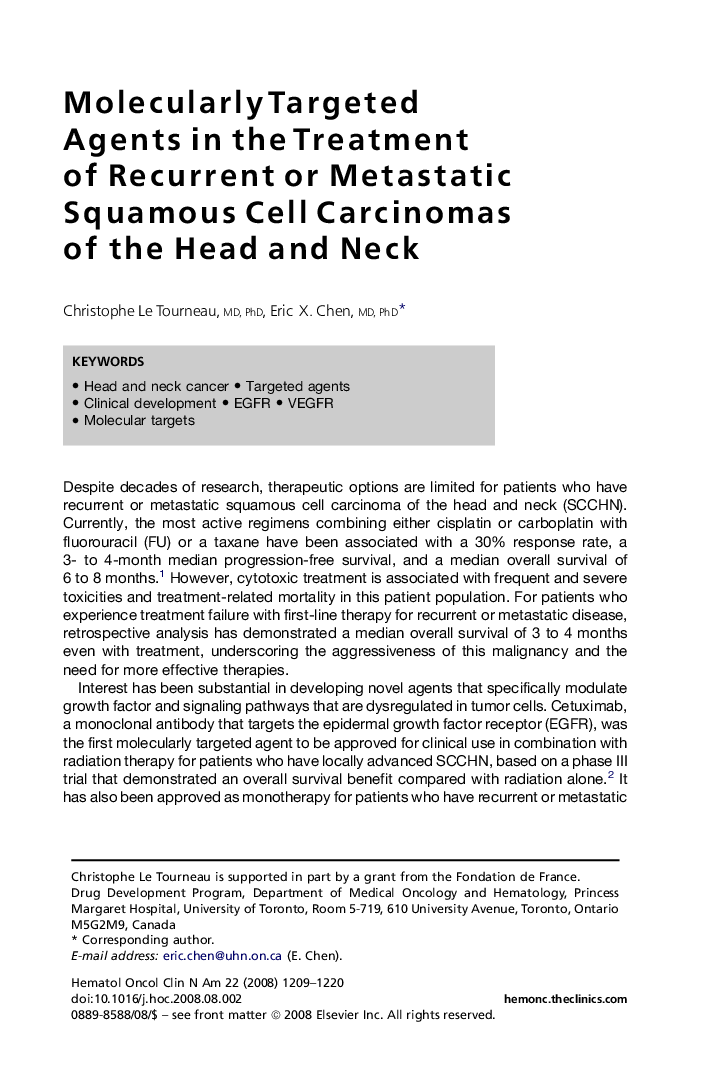| Article ID | Journal | Published Year | Pages | File Type |
|---|---|---|---|---|
| 3331975 | Hematology/Oncology Clinics of North America | 2008 | 12 Pages |
Proof of principle that molecularly targeted therapy is a valid therapeutic approach for squamous cell carcinoma of the head and neck (SCCHN) has emerged with epidermal growth factor receptor targeting agents. Other interesting targets, such as Src, insulin-like growth factor 1 receptor, and the proteasome, have been shown in vitro to play key roles in SCCHN, and their inhibition is currently being studied in phase II trials. Identification of predictive biomarkers of resistance or sensitivity to these therapies remains one of the main challenges in the optimal selection of patients most likely to benefit from them. However, clinical trials with these novel agents need to be designed rationally to improve the overall outcome of patients. Given the emerging evidence that human papilloma virus–related SCCHN is a distinct disease, it should be studied in specific trials.
